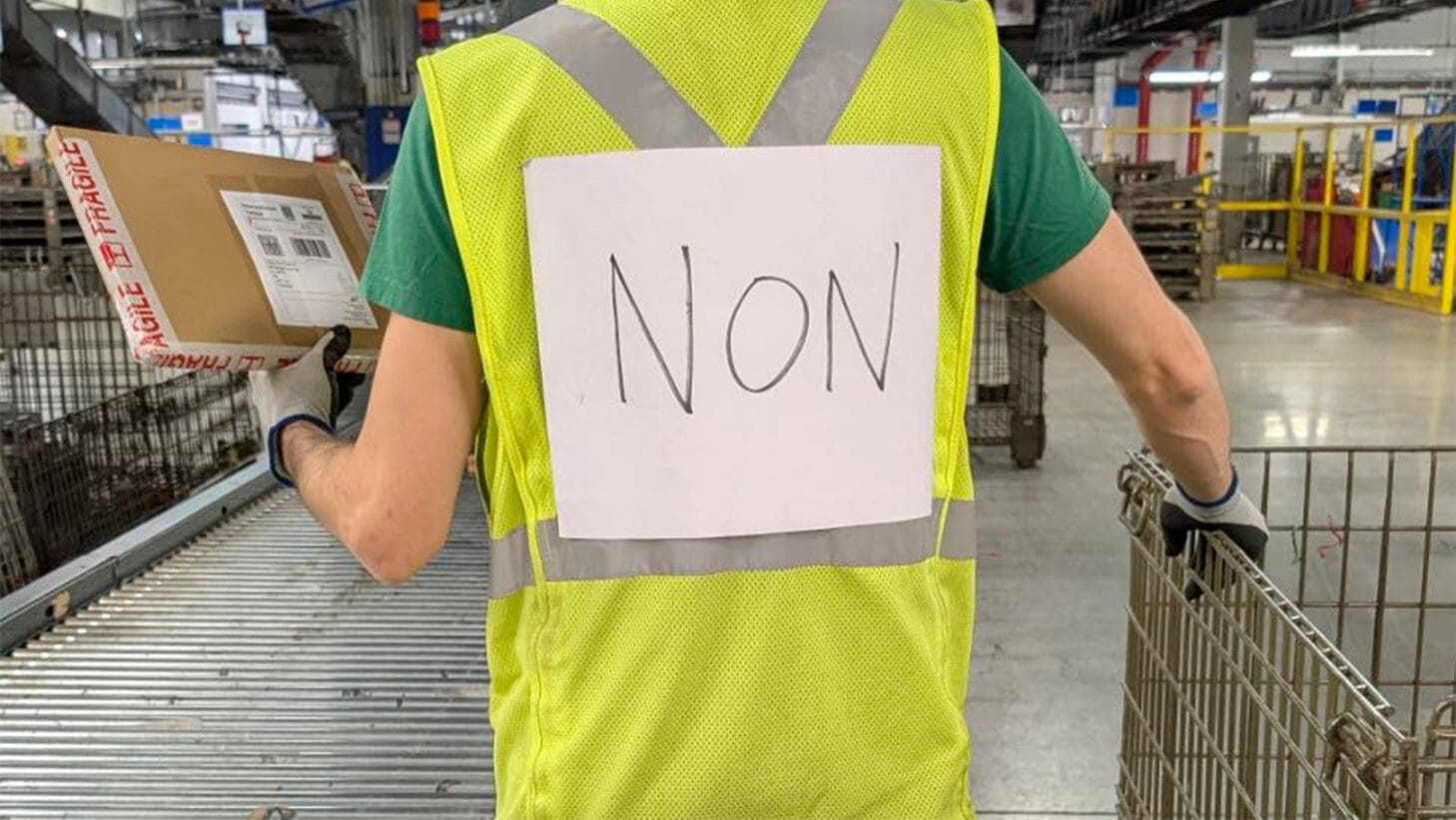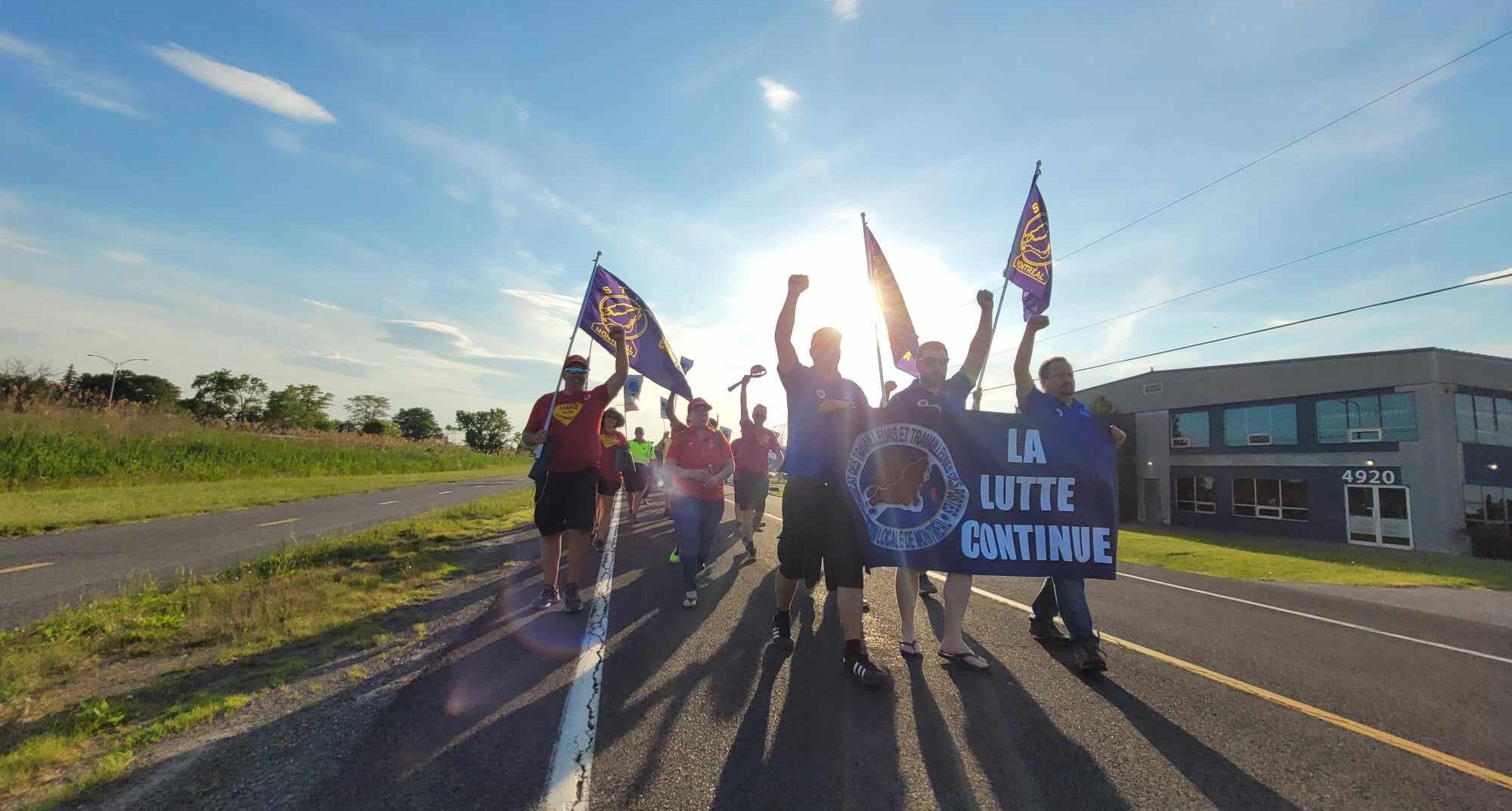After being forced by the federal government to vote on an already-rejected offer, Canada Post workers have once again pushed back against the Crown corporation and interference by the state. With 70% voting against the company’s latest “final” offer, CUPW and Canada Post are now set to begin another round of bargaining. The North Star reached out to workers for their thoughts on the rejected deal and what will happen next.
“Rejection was the right thing to do”, says David Tsinovoy, a Canada Post maintenance worker in Mississauga, “It’s a very small step towards reaffirming, fighting for our right to collective bargain which was robbed from us by the government”.
To Pierre Wilson, a postal worker in Montreal, the offer was “nothing but retreats, lots of hidden retreats. I would tell you Canada Post played a lot on the fact that we’ve been in a labour conflict and that there was little negotiating happening. Each time we read the offer, we found small traps. Playing around with delivery workers’ schedules to set up a gig-work system. The offer did not respond to the workers’ needs at all.”
Wilson thinks that “the Labour Minister is waiting for there to be another labour conflict to declare arbitration. I and other workers think the only way forward will be arbitration”.
According to Tsinovoy, the cloud of back-to-work mandates by the government looms over this rejection:
“What is happening next is that we return to the bargaining table with our employer, however, you know this employer has demonstrated through decades of bargaining experience that it does not bargain in good faith,” Tsinovoy told The North Star.
“My thoughts are that if we continue, if we return to the bargaining table under the same modus operandi that we were previously bargaining under, that we think we can merely bargain our way to a deal here, without acknowledging the fact that our employer sics the government on us to get whatever deal’s favourable to it, we’re simply going to end up in the same situation that got us here in the first place”.
In 2024, the federal government imposed back-to-work orders on three occasions. First was the CN and CPKC rail workers strike, second was for strikes by dock workers in Vancouver, Montreal, and Quebec City, and third was the postal workers. The power for the state to undermine strikes is written under article 107 and 108 in the Canadian Labour Code.

“There is a certain element of pride attached to [rejecting the offer]”, says Wilson, “CUPW has a great history behind it. We made great strides that allowed us to win so many things for all Canadians. It would’ve been a shame to be attached to the first union that would have ratified a vote under articles 107/108, you know, a forced vote. That would have spat on the legitimacy of our union”.
CUPW has a history of winning concessions for workers across the country. Its first ever strike in 1965, an illegal wildcat strike, was the largest illegal labour stoppage involving government employees and won the right to collective bargaining for all public sector employees.
CUPW has previously violated back-to-work legislation in 1978, with workers staying on pickets for an extra week after the strike was declared illegal. In 1981, CUPW was the first union to win paid maternity leave for public sector employees.
In the experience of both Tsinovoy and Wilson, the vote to reject Canada Post’s offer stems from paltry proposed wage increases that barely keep up with inflation and the gig-ification of their work. Furthermore, during the COVID-19 pandemic, CUPW had postponed bargaining for two years to avoid service disruptions for Canadians, with Canada Post promising increased wages to make of for the lack of bargaining instead.
“Since 2011, at every round of collective bargaining we’ve lost on wages and working conditions, et cetera. This round of negotiations was ‘status quo’ or ‘making some gains.’ This has lasted over a year and half, and the employer persists in regressing worker gains,” explains Wilson. “The company wants to increase the number of permanent part-time positions, […] the union doesn’t want precarious jobs.”
Tsinovoy believes that “the stark reality is that we have to be bold and willing to defy [back-to-work orders] to show the company that we will not be cowed by their siccing the government on us. We have to all recognize that the only bargaining leverage we have as a union exists with our ability to collectively withdraw our labour. If we don’t wield that, we can expect to continue the decades-long pattern of concessionary contracts and declining contract qualities”.
Citing competition from private courier services and declining use of lettermail, Canada Post has turned to keeping wages low and cutting jobs while crying “deficit”, despite postal workers offering alternatives in the Delivering Community Power campaign.
While Canada Post’s myriad executives search for ways to make Canada Post competitive with private couriers, Wilson says, “It’s regrettable that we have all this infrastructure in Canada. There’s a post office in nearly every town, and yet this public service is barely used. The owners lack vision for CP. There are many possible ways to find revenues for the company. This is a public service for Canadians.”


Be part of the conversation!
Only subscribers can comment. Subscribe to The North Star to join the conversation under our articles with our journalists and fellow community members. If you’re already subscribed, log in.